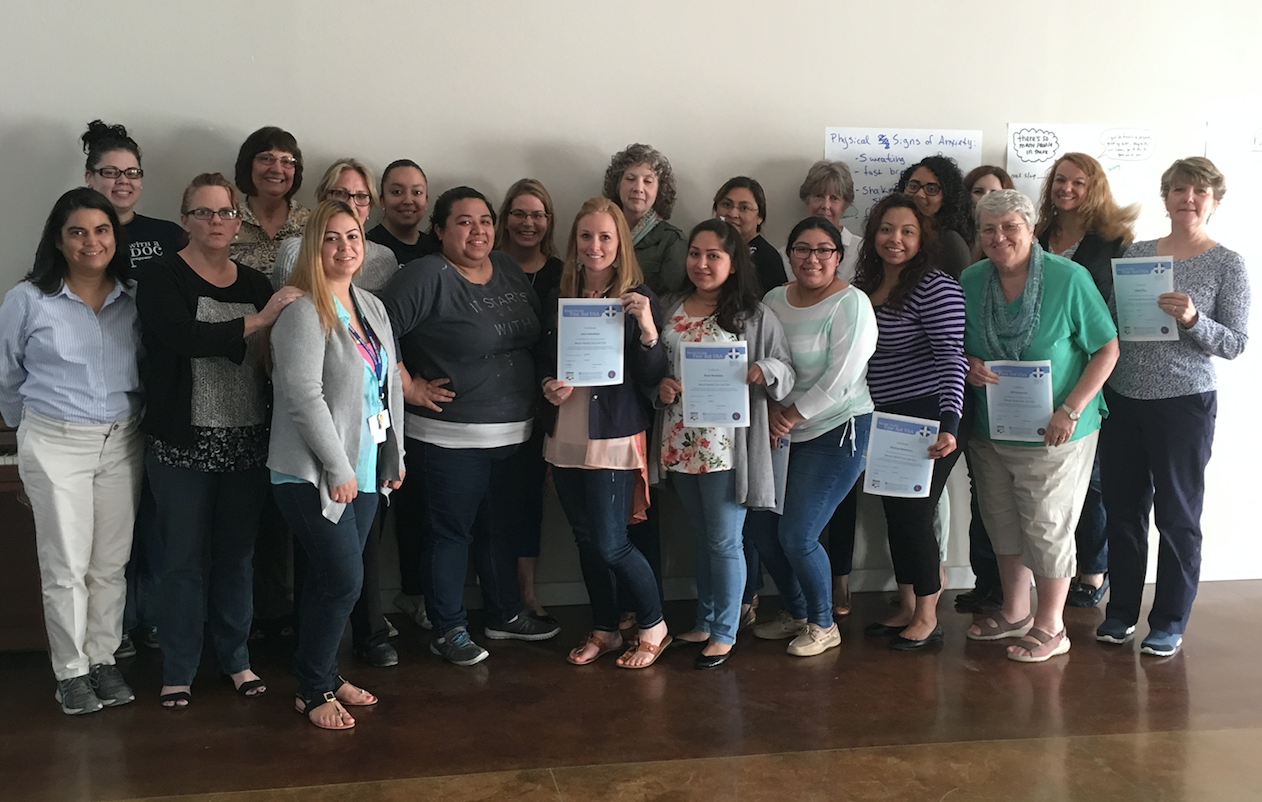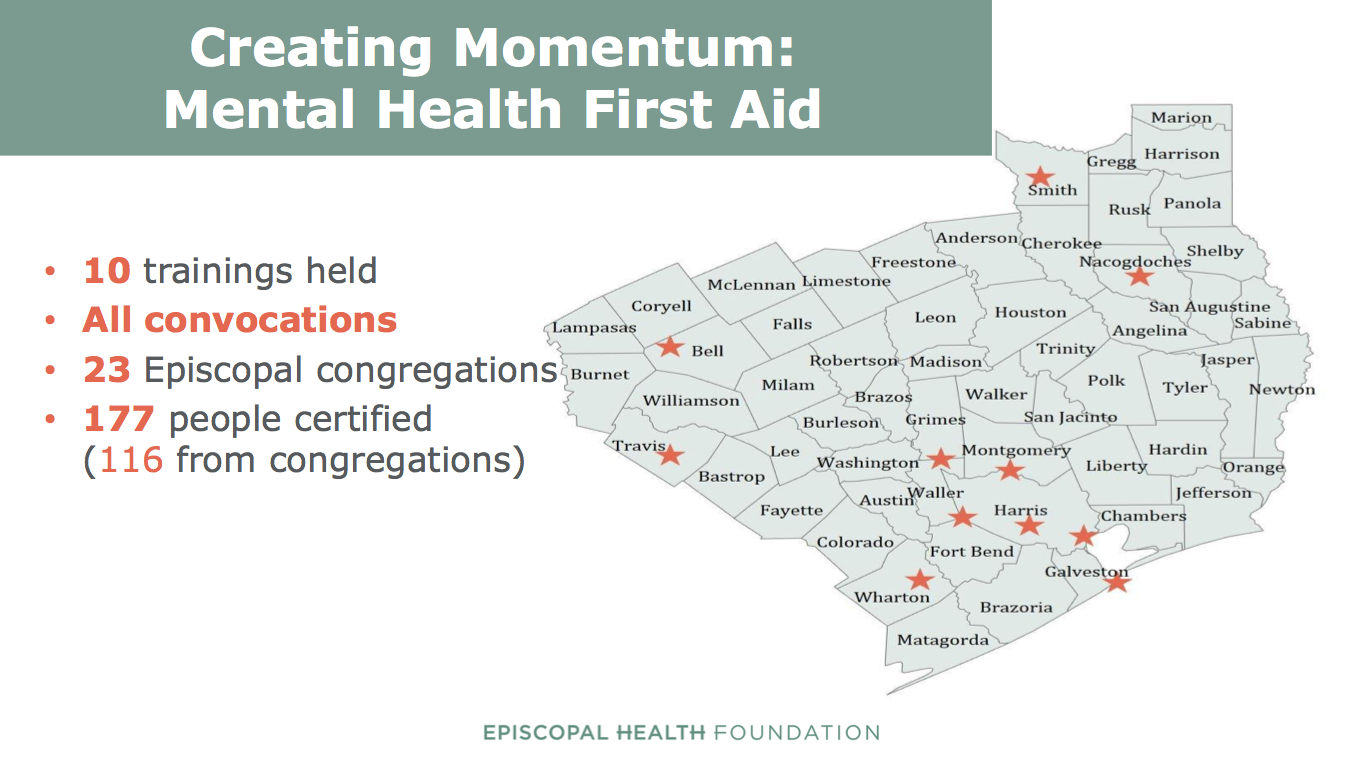
Congregation members from St. Paul’s Episcopal Church in Katy and others from the community participated in a Mental Health First Aid training session earlier this month.
In January 2016, EHF launched a series of Mental Health First Aid training sessions in response to congregations identifying mental health as one of the top concerns in their communities. EHF aims to increase access to mental health services and advocate for mental health policy and programs.
Mental Health First Aid (MHFA) is an evidence-based, eight-hour course designed to equip people with the tools necessary to help someone who is developing a mental health need or experiencing a crisis. The program has been shown to build mental health literacy, and help people with no clinical training better understand and respond to signs of mental illness and to effectively refer people to professional help.
The training is meant for all people and organizations that regularly interact with people and who are interested in learning more about mental illness and addiction. This training is especially useful in the faith community because church ministries are often the first point of contact to provide assistance and support.
By the end of July, congregations from all 10 convocations of the Episcopal Diocese of Texas will have attended a training session. Sessions have taken place in Austin, Nacogdoches, Galveston, LaPorte, Houston, Tyler, The Woodlands, Killeen, Wharton and Katy.
Training Feedback
Overall Course
96% of participants found the course content practical and easy to understand
93% of participants felt there was adequate opportunity to practice the skills learned
As a result of this training, participants feel more confident they can…
98% …recognize the signs that someone may be dealing with mental health problems or crisis
96% …reach out to someone who may be dealing with a mental health problem or crisis
93% …assist a person who may be dealing with a mental health problem or crisis to seek professional help (or peer/community supports)
97% …be aware of their own views and feelings about mental health problems and disorders
93% …recognize and correct misconceptions about mental health and mental illness as they encounter them
The next training session is scheduled for July 2 at Grace Episcopal Church in Southwest Houston. In addition, our first session of Youth Mental Health First Aid will be hosted at Camp Allen for the summer camp staff in June.
More training sessions are being scheduled throughout the year. You can find information about each session on EHF’s Learning Opportunities page, which is updated regularly.
Read testimonials from MHFA participants below:
“I learned so much more about the various mental health issues! I now understand our family issues, friend problems and have a good idea of what I can do to help.“
Participant
Trinity, The Woodlands
“After learning the most important things to do when someone has a mental health issue, I feel much better equipped now.”
Participant
St. David’s, Austin
What new or surprising information did you gather from the training?
“Learning that it’s mental health and not mental illness. Not making it a derogatory term. We get used to hearing words like ‘crazy’ and I’m trying to get those words out of my vocabulary and realizing that it’s a problem.”
Participant
Trinity, The Woodlands
What ideas, if any, do you have for increasing Mental Health knowledge?
“I realized I left there thinking how will other people have an opportunity to do the training? How can this be an opportunity for others? How can we spread the word about the training? What can we tell our peers about how to get involved? How can we help more people?”
Participant,
Trinity, The Woodlands
“Offer the training at my parish and encouraging members to participate; Being open about the importance of mental health and communicating that everyone is susceptible so we all need compassionate awareness; A bulletin board with MH awareness and contact info; Mentioning MH periodically in newsletters; Posting good MH info and links on social media; Doing a Sunday School class about MH awareness. Those are just some ideas.”
Participant
Trinity, Baytown
